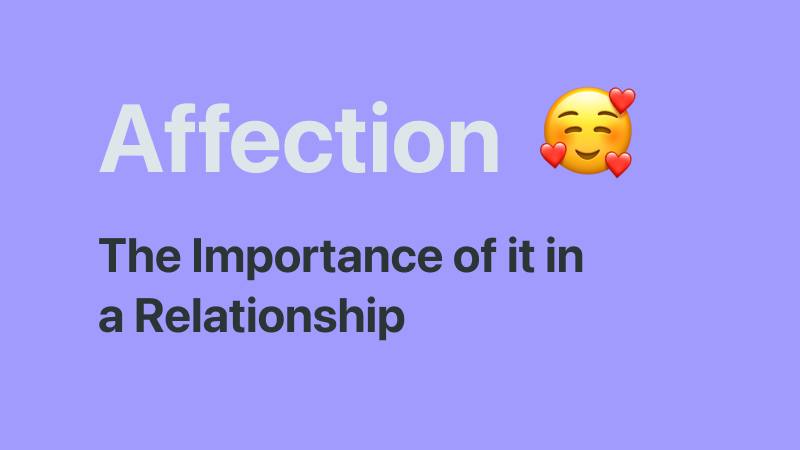The Importance of Affection in a Relationship
Affection is a fundamental aspect of any healthy and fulfilling romantic relationship. It's not just about physical touch, but encompasses a wide range of emotional expressions that help partners feel loved, valued, and connected. In this article, we'll explore why affection is so crucial in a relationship and the different ways you can show affection to your partner.
The Benefits of Affection
Numerous studies have highlighted the profound impact of affection on our overall well-being and relationship satisfaction. When we engage in affectionate behaviors, such as hugging, holding hands, or simply expressing verbal appreciation, our bodies release feel-good hormones like oxytocin, which can reduce stress, lower blood pressure, and boost our mood.
Affection also plays a crucial role in building trust and intimacy between partners. Couples who are more physically affectionate tend to report higher levels of marital love and relationship satisfaction. Additionally, affectionate behavior can make you appear more trustworthy in the eyes of your partner.
Expressing Affection in Diverse Ways
While physical touch is often the first thing that comes to mind when we think of affection, there are many other ways to show your partner you care. Verbal affirmations, quality time spent together, acts of service, and thoughtful gifts can all be powerful expressions of affection.
It's important to remember that everyone has different preferences when it comes to receiving and expressing affection. The key is to communicate openly with your partner and understand their love language, ensuring that both of you feel loved and cherished in the relationship.
Cultivating a Culture of Affection
Affection isn't just important within the confines of a romantic relationship; it can also have a profound impact on our broader social connections and the overall well-being of our communities. By extending kindness, empathy, and understanding to those around us, we can create a ripple effect that resonates far beyond our immediate circles.
Research has shown that acts of kindness and compassion not only benefit the recipient but also enhance the psychological and physical health of the giver. [5] By fostering a culture of affection and care, we can contribute to the collective flourishing of humanity.
Reflection and Self-Assessment
After trying new ways to show affection to your partner, take a moment to reflect on the experience. Ask yourselves: "What did we learn about each other during this experience that we didn't know before?"
Quick Quiz: Are You and Your Partner Affectionate Enough?
-
How often do you and your partner engage in physical affection (hugging, kissing, cuddling, etc.)?
a) Daily
b) Weekly
c) Rarely -
When was the last time you expressed verbal affection (saying "I love you," giving compliments, etc.)?
a) Within the last 24 hours
b) Within the last week
c) Can't remember -
Do you and your partner regularly set aside time for quality activities (going on dates, having deep conversations, etc.)?
a) Yes, at least once a week
b) Occasionally, but not as often as we'd like
c) No, we're usually too busy




